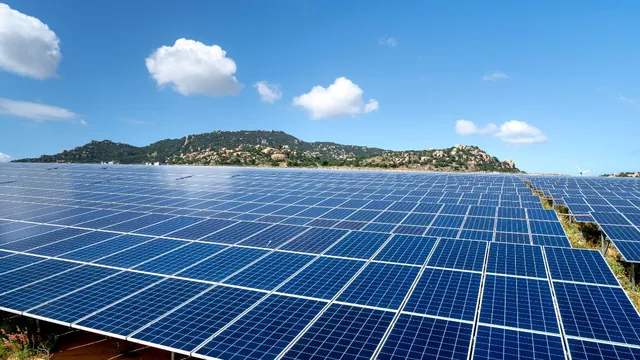- By Kamakshi Bishnoi
- Thu, 06 Nov 2025 11:47 PM (IST)
- Source:Jagran News Network
The business of recycling materials from damaged or end-of-life solar panels in India has the potential to grow into a market worth Rs 3,700 crore by 2047, according to two new independent studies released by the Council on Energy, Environment and Water (CEEW) on Thursday.
The findings suggest that if this opportunity is leveraged, critical materials such as silicon, copper, aluminium, and silver can be recovered from solar waste. This could meet up to 38 per cent of the country’s domestic manufacturing requirements in the solar sector by 2047, while also preventing 37 million tonnes of carbon emissions through the use of recycled materials.
Currently, solar module recycling in India remains in a nascent phase, with only a few commercial operations functioning across the country. The latest CEEW framework outlines a roadmap for developing a robust domestic recycling ecosystem aligned with clean energy ambitions and self-reliance goals.
India’s projected installed solar capacity could generate over 11 million tonnes of solar waste by 2047, largely from crystalline-silicon modules. To manage this volume, nearly 300 recycling facilities and an investment of around Rs 4,200 crore will be required nationwide.
“India’s solar revolution can power a new green industrial opportunity,” said Rishabh Jain, Fellow at CEEW. “A circular approach in our clean energy systems will help recover critical minerals, strengthen supply chains, create green jobs, and turn waste into economic value. This is key to resilient and responsible growth.”
ALSO READ: Meerut News: Traffic Diversion Implemented On Garh Road Amid Construction | Key Routes Affected
The study also highlights that the current business model remains financially unviable, with recyclers incurring losses of Rs 10,000-Rs 12,000 per tonne. Waste module procurement accounts for nearly two-thirds of expenses (around Rs 600 per panel), followed by processing, collection, and disposal costs.
The report recommends policy interventions such as Extended Producer Responsibility (EPR) certificate trading, tax incentives, and R&D support to improve the economic feasibility. It also suggests keeping module scrap prices below Rs 330 to ensure profitability for recyclers.

